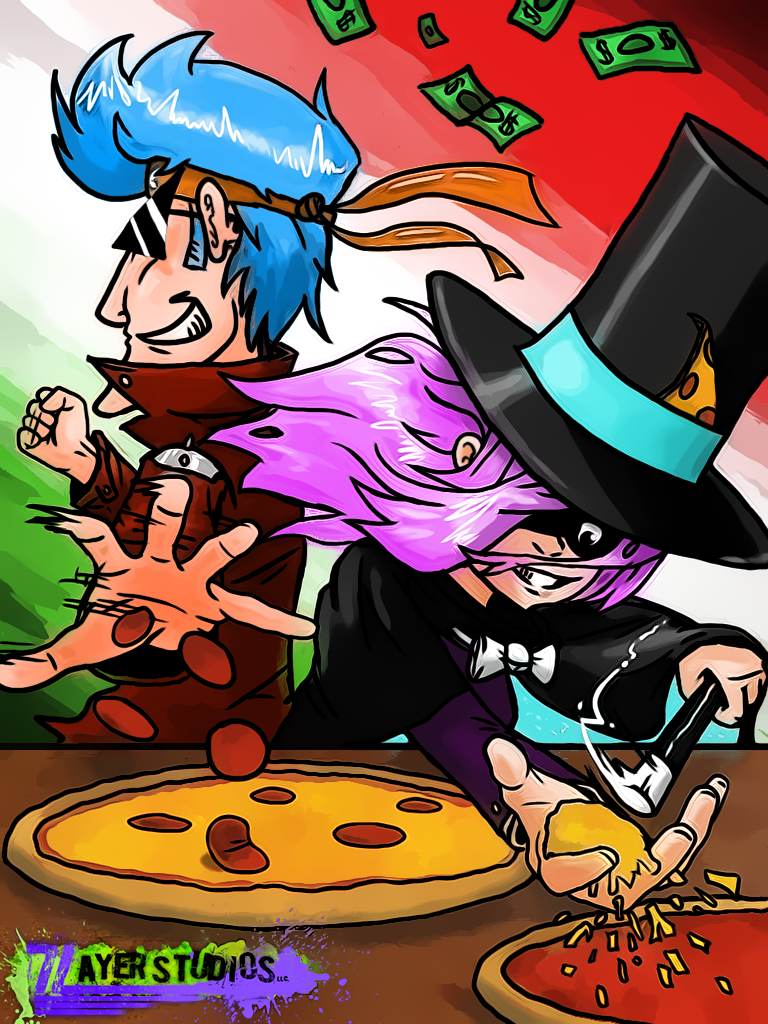Pizza! Fast!
Seven Layer Studios was a foray into indie development. A huge learning experience, which I’d be a less capable developer without it.
Project: A mobile game for iOS about making ridiculous pizzas ridiculously Fast
Production Period: 15 months (July 2014- September 2015 Part Time)
Platform: iOS
Role: Designer, Junior Artist, Company Co-founder, Operations Administrator
Target Audience: Regular commuters, people looking to kill time
Intended Length of play: 15- 120 minutes
Target Rating: E
Engine: Unity 3D
Team Size: 5
Levels: 13
DESIGN NOTES
At first topping placement speed was important because we wanted it to be useful for regulating the speed at which players moved through the game, but it soon became apparent that making pizzas with several toppings was a slow enough process, and we didn't want the game to be too long winded, so we made toppings place as fast as the player could. This felt a lot better, as now the blame for failing in game was largely shifted from the game to the player. Then in order to create a difficulty curve and a challenge, we created timers for the pizzas. These were then adjusted so that it felt like players had enough time to make the pizzas, especially for beginners at the start of play, but were made to reduce as players progressed producing a greater challenge.
Making money with our first game and no reputation was unlikely. So we decided to be experimental. We have one in app purchase, a way for players to donate to our company, and banner ads, which players can remove. What I thought would be innovative though, is that our ads can turn off for free, and rather than paying something to do so, we put our faith in the hands of those who like our games to donate, pleading our case that we don't like ads in the middle of games we play either, but we need to make money, so if they want to turn off ads, then it would be nice if they donated directly to us later.
My Many Hats
Assistant Producer Responsibilities
Organized team schedules and goals
Prepared meeting agendas and took notes
Allocated tasks to team members
Maximized team performance per skills
Regulated team policies and decisions
Design/Tech Art Responsibilities
Topping placement rate, pizza grading, and level progression systems
Balancing metrics for main mechanics
Difficulty design and tuning
Character abilities
Implementation into engine of art for 196 toppings
Monetization design and implementation
Designing visually distinct toppings for pizza
Packaging of toppings into sprite atlases
Notes on Seven Layer Studios
As a founding member of Seven Layer Studios it was my responsibility to make sure that everyone on the team was serious about what we were doing. We were all fresh out of college and we didn't really have a plan other than "start an indie studio" and it fell to me to say things to the effect of "Hey guys, what's our plan? We need to make a plan if we're going to succeed."
A few times, I felt the need to call a meeting to talk about how the amount of time and the amount of work we were putting into our project just didn't seem like enough to be claiming ourselves as a company, really, but more of a hobby group. Upon occasion I would sit down with individuals and/or the team to talk about whether or not team members were pulling their weight, or actively making worth while assets of themselves for the team. Starting these serious conversations was my most important role in the company.
My experience at Seven Layer Studios taught me how to buckle down and have serious conversations with my peers without skirting around uncomfortable subjects to make sure that we had clear understandings of each other and what we needed to do. I also learned that working at an indie studio requires a lot of dedication and effort that not everyone is willing to put forth, so choosing team members is integral, and having a firm grasp of what everyone is willing to put into the project is key.

